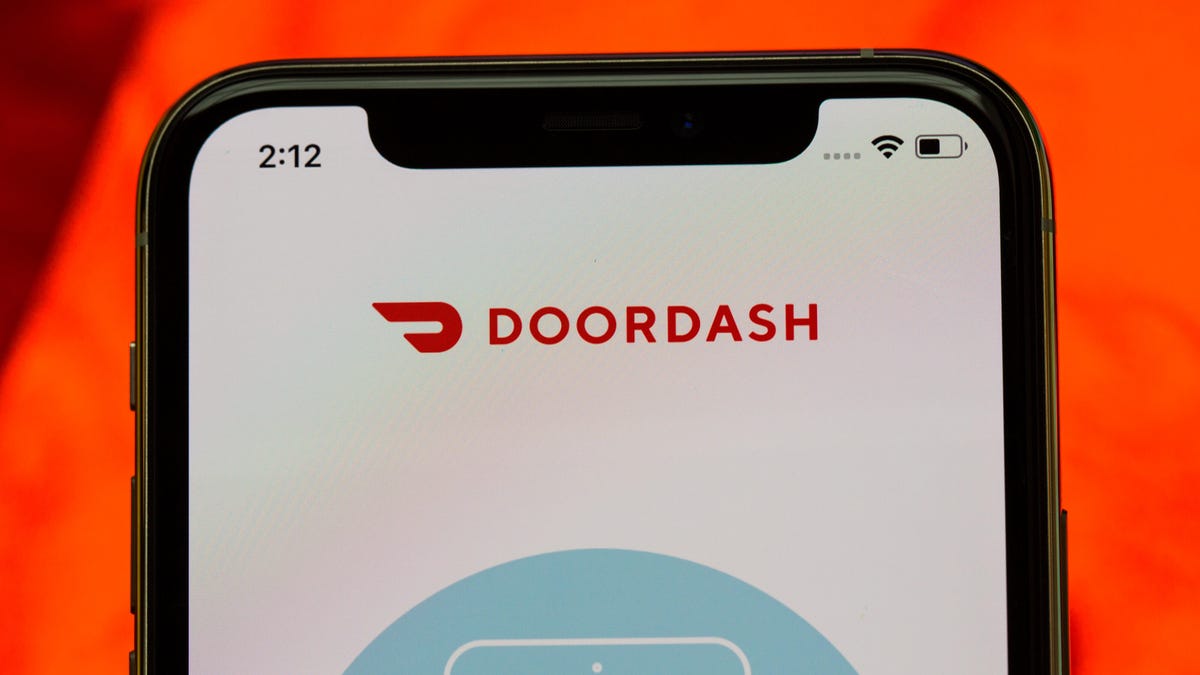DoorDash settles lawsuit for $2.5M over 'deceptive' tipping practices
The food delivery company allegedly led customers to believe their tips were going to delivery workers when the company was pocketing the money itself.

DoorDash's year-long lawsuit with Washington, DC, comes to a close.
DoorDash agreed on Tuesday to pay $2.5 million to settle a lawsuit alleging it misled customers about its tipping policy for drivers. The lawsuit was brought by the attorney general of Washington, DC, Karl Racine, in November 2019, who said DoorDash led customers to believe their tips were going to delivery workers when the company was actually pocketing the money itself.
The agreement brings to a close a debacle that began nearly two years ago, which has led to customer backlash, worker grievances and the lawsuit brought by Racine.
"Today's settlement rights a wrong that deceived DC consumers and deprived workers of monies that they should have been paid," Racine said in a statement. "The law applies to these [gig economy] companies, just as it does to their brick-and-mortar counterparts."
The gig economy, which includes delivery companies like DoorDash, Instacart and Postmates and ride-hailing companies like Uber and Lyft, has been under fire for not doing enough to protect workers. Lawsuits have been filed against Instacart and Uber over their tipping policies. Several other suits have been brought over the companies' classification of their workers as independent contractors rather than employees, which deprives workers of labor protections, like minimum wage, health care and sick leave.
San Francisco-based DoorDash, which filed for its initial public offering earlier this month, operates in more than 4,000 cities across the US and Canada. It has more than 18 million customers and more than 1 million delivery workers, known as Dashers. It also leads the meal delivery market. In September, DoorDash had 49% of meal delivery sales, while its closest competitor, Uber Eats, had 22%. In its IPO filing, however, DoorDash said risk factors to its business include its ability to "cost-effectively attract and retain Dashers" and being subject to lawsuits.
While DoorDash settled the lawsuit with Racine, it still denies the allegations. DoorDash said in the consent decree filed on Tuesday that nothing in the agreement may be construed as admission of wrongdoing or violation of any law. Despite that, the company did change its tipping and pay model for its delivery workers last year.
"We're pleased to have this issue behind us," a spokeswoman for DoorDash said in an email. "Our focus is on continuing to support Dashers, restaurants, and customers in DC and around the country."
The original tipping policy that got DoorDash into trouble had been in place since 2017, but it wasn't until NBC News published an article about it in early 2019 that the turmoil began. The way the tipping policy worked is that the company would pay delivery workers a base rate for each delivery. When a customer tipped through the app, that money would go toward the base rate instead of being tacked on top. That means whenever tips were involved, DoorDash would pay less of that base rate but the delivery workers wouldn't get anything extra.
"DoorDash's tip structure essentially picked the pockets of its most dedicated workers. The company deviously sought ways to pad its bottom line, while customers believed they were supporting Dashers working tirelessly to make ends meet," said Bryant Greening, an attorney with LegalRideshare, which represents gig workers in legal disputes but has no affiliation with this lawsuit. "Washington, DC, serves as a model for cities and states nationwide, standing up to gig companies that exploit vulnerable workers."
In his lawsuit, Racine said that any reasonable person would expect a tip to go to the delivery worker and that the company's FAQ for customers about tipping was "ambiguous, confusing, and misleading."
DoorDash "did not disclose that a consumer's tip would, in the vast majority of circumstances, make no difference at all to a Dasher's pay and would only go toward subsidizing DoorDash's share of Dasher pay," the complaint reads. It added that the more customers tipped, the less DoorDash had to pay workers itself.
Under its new pay model, which went into effect in September 2019, DoorDash said it worked with an independent third party to verify it always pays 100% of tips to delivery workers.
With the lawsuit settlement, DoorDash has agreed to pay $2.5 million. Of that total, $1.5 million will go to the company's workers who made deliveries in Washington, DC, when the former pay model was in place. The remainder of the money will go to the District, $750,000, and to two charities in the city, $250,000. DoorDash also agreed to continue using a pay model that ensures all tips go to workers without lowering their base pay.

